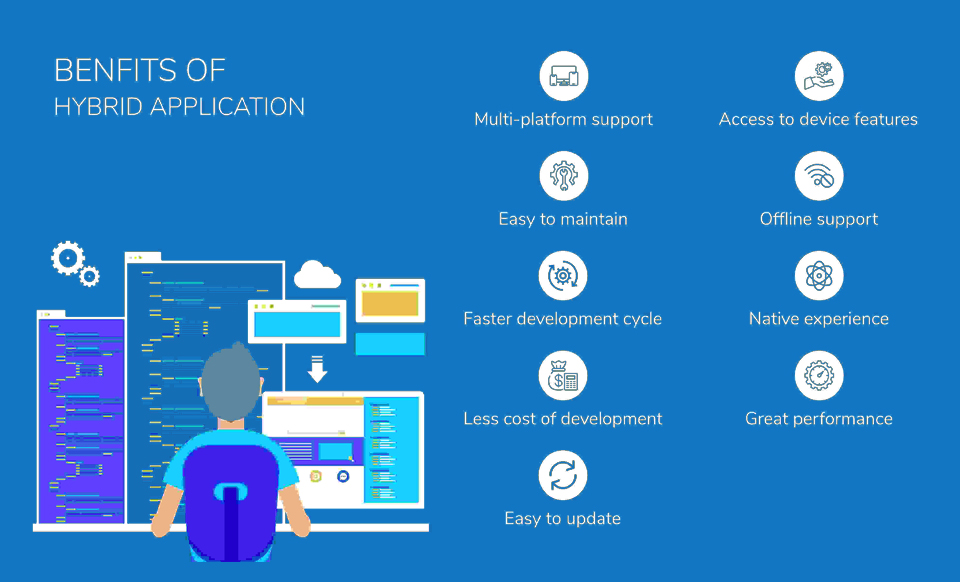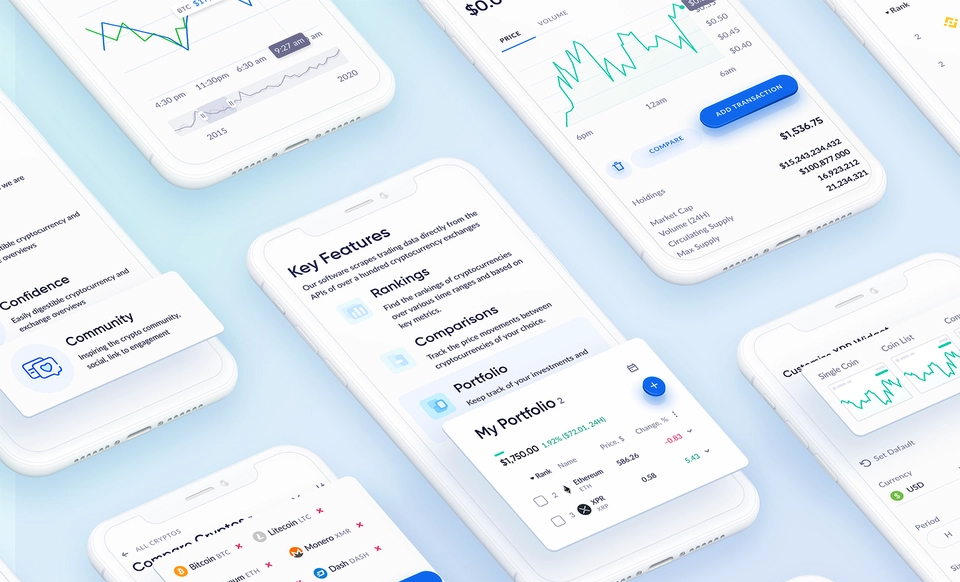Hybrid Mobile App is not a new concept and businesses have been benefiting from it for many years now. There are many advantages of mobile app development, but some of the most notable ones include increased brand awareness, higher engagement with customers, and better customer retention. In addition, mobile app development can also help to boost sales and revenues. What share of the population now uses the internet? According to the most recent data, the answer is 4.95 billion in 2022. More than 80% of adults in the United States claim they use the internet daily.With more and more people using mobile devices to access the internet, it is important for businesses to have a presence on these devices. And one of the best ways to do this is through hybrid mobile app development. Hybrid mobile app development combines the best features of both native and web-based app development to create an app that is easy to use and provides a great user experience. In addition, hybrid mobile apps are also very flexible and can be easily customized to meet the specific needs of a business. Hybrid apps are designed by mobile app development services to work on multiple platforms, including both iOS and Android devices. This allows businesses to reach the largest possible audience with their app.


Benefits Of Hybrid Mobile Apps Over Traditional Mobile Apps
Though traditional mobile apps have been in use for quite some time now, hybrid mobile apps are becoming increasingly popular. Hybrid apps are created using a combination of web technologies like HTML, CSS, and JavaScript. This makes them more cross-platform compatible and easier to develop than native apps. In addition, hybrid apps tend to be more affordable and quicker to develop than traditional apps. As a result, they offer a number of benefits for businesses looking to develop a mobile presence.Though each type of app has its own advantages, hybrid apps offer a number of unique benefits over traditional apps.- One key benefit is that they can be used on multiple platforms. This means that businesses only need to develop one app, rather than developing separate apps for each operating system.
- Hybrid mobile apps are also more flexible than traditional apps, as they can be easily updated without having to go through the app store approval process.
- Hybrid apps tend to be more lightweight and faster loading than traditional apps.
- Hybrid mobile apps tend to have a shorter learning curve for users since they are typically based on familiar web interface conventions. As a result, hybrid mobile app development is often a good choice for businesses that want to offer their customers a modern, user-friendly experience without incurring the high costs associated with developing and deploying a traditional native app.
How Can Businesses Benefit From Developing Hybrid Mobile Apps
Mobile apps have revolutionized the landscape of modern business. By providing a convenient and user-friendly way for customers to connect with your business, they can help to increase sales and profits. And, with the increasing popularity of smartphones and tablets, there is a growing demand for hybrid mobile apps. Hybrid mobile apps are designed to work seamlessly on both iOS and Android devices, making them an essential tool for businesses that want to reach the widest possible audience. In addition, hybrid mobile apps offer a number of other benefits, including the ability to work offline and improved security. As the mobile app market continues to grow, businesses that fail to develop a hybrid app will likely be left behind.Hybrid apps are web-based applications that are wrapped in a native container, making them look and feel like traditional apps. This allows them to be published in app stores and accessed by users through an icon on their device. Hybrid apps offer a number of benefits for businesses, including the ability to reach a wider audience, improve customer engagement, and boost brand awareness. In addition, hybrid apps are usually less expensive and easier to develop than native apps, making them a great option for businesses on a tight budget. With so many advantages, it’s no wonder that hybrid mobile apps are becoming increasingly popular with businesses of all sizes.What Factors Should Businesses Consider When Deciding Whether To Develop A Hybrid Or Traditional Mobile App
There are a number of factors that businesses should consider when deciding whether to develop a hybrid or traditional mobile app.One key factor is the target audience for the app. If the app is being designed for users who are likely to be using a variety of different devices, then a hybrid app may be the best option. This is because hybrid apps can be designed to work across multiple platforms, making them more accessible to a wider range of users.Another key factor is the level of functionality that is required from the app. If the app only needs to offer basic functionality, then a traditional app may be sufficient. However, if the app is required to offer complex functionality, then a hybrid app may be a better option as it can make use of the capabilities of both native and web-based apps.Finally, businesses should also consider the cost and time involved in developing and maintaining a hybrid app. Although hybrid apps can offer some advantages, they can also be more expensive and time-consuming to develop than traditional apps. As such, businesses need to carefully weigh up all of these factors before deciding which type of app would be best for their needs.

